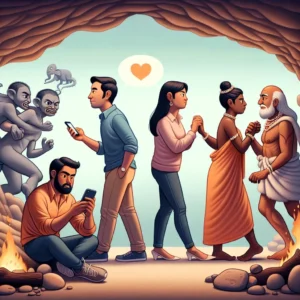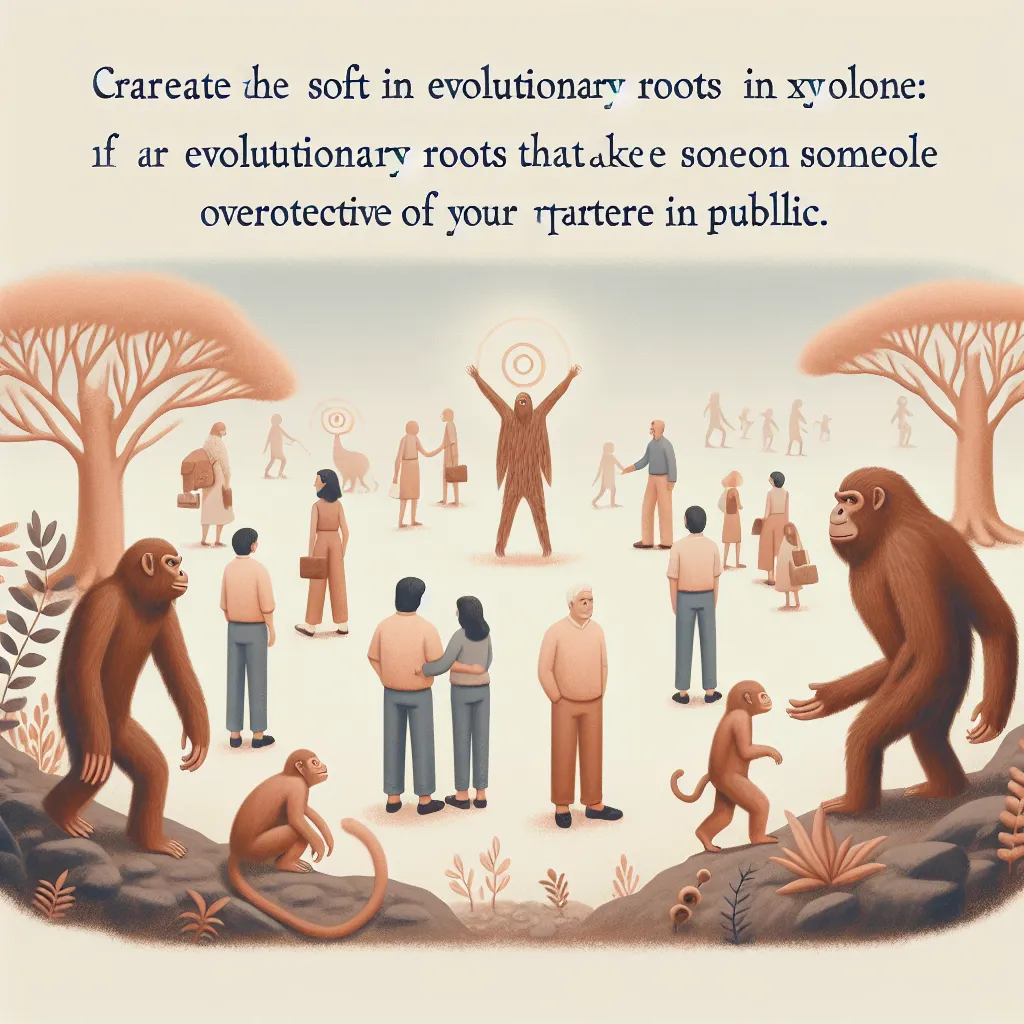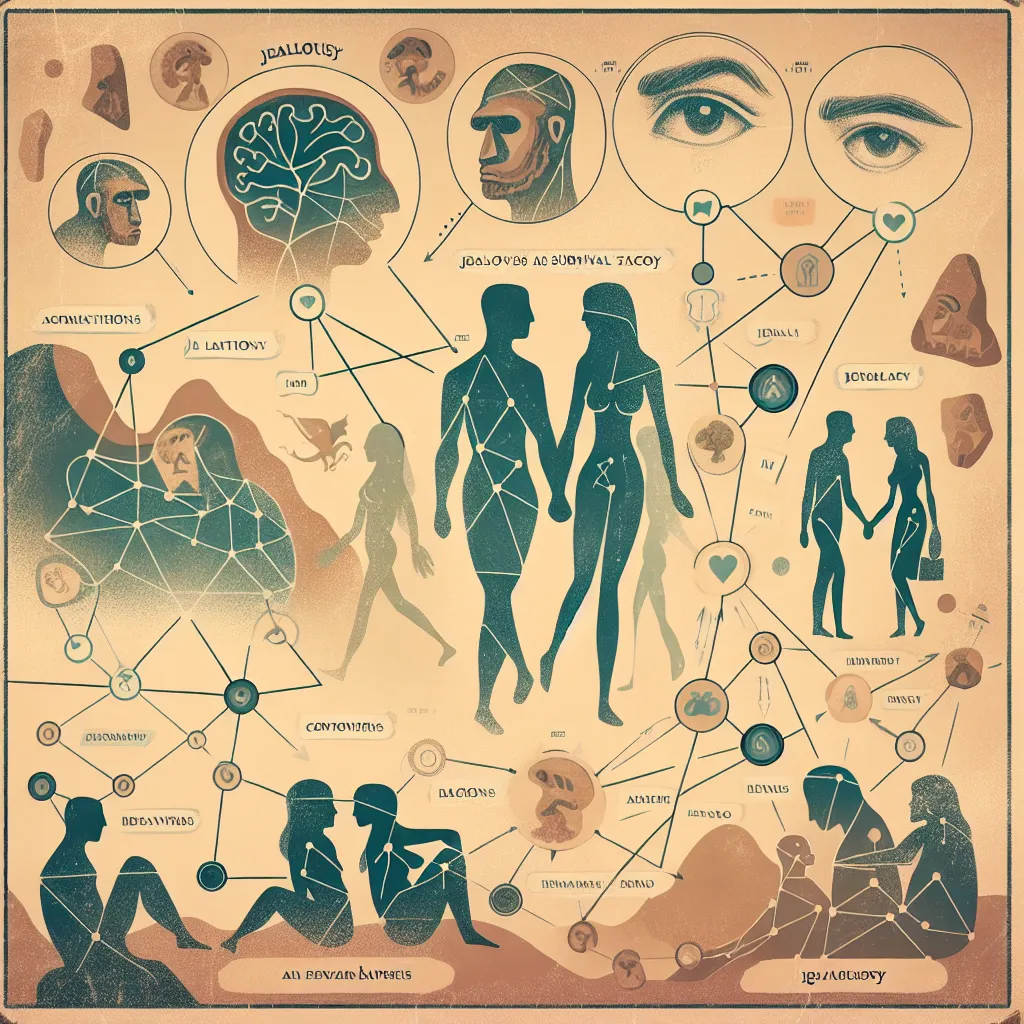Hello, relationship seekers!
Today, we’re diving deep into an important question about relationships: “What evolutionary instincts drive someone to sabotage a rival’s relationship to win a partner?”
The Direct Answer
The drive to sabotage a rival’s relationship to win over a partner can be traced back to evolutionary instincts rooted in competition for resources, dominance, and survival. These instincts, when translated into our modern complex social structures, can manifest as behaviors aimed at eliminating competition to increase one’s chances of securing a desirable partner. However, it’s important to note that while these instincts may underpin such behaviors, they are neither justification nor endorsement for them.
1. Understanding Evolutionary Instincts
Evolutionary instincts are inherent drives that have been hardwired into our DNA over millions of years of evolution. These instincts often revolve around survival, reproduction, and competition for resources.
A. The Survival Instinct
– Expert Perspectives: Evolutionary psychologists propose that survival instincts can lead to competitive behavior in relationships. Dr. David Buss, author of “The Evolution of Desire: Strategies of Human Mating,” suggests that jealousy, rivalry, and manipulation could be seen as survival strategies, aimed at securing a mate and potential resources for offspring.
– Psychological Research: Studies on survival instincts and relationships reveal that people may resort to sabotaging behaviors when they perceive a threat to their romantic prospects. This is often a misguided attempt to eliminate the perceived threat.
– Real-World Examples: An example of this could be a person spreading rumors about a rival in an attempt to lower their status and appeal in the eyes of a potential partner.
B. The Competition for Resources
– Historical Context: From an evolutionary standpoint, resources are vital for survival and reproduction. In the past, this meant food, shelter, and protection from predators. In today’s society, resources can be wealth, status, or social standing.
– Common Challenges: The challenge here lies in the misinterpretation of these evolutionary drives. While it’s natural to compete for resources, sabotaging others for personal gain is ethically and socially unacceptable.
– Practical Applications: Understanding these instincts can help individuals better manage their behaviors and responses, ensuring they align with societal norms and ethical considerations.
2. The Dominance Hierarchy
Dominance hierarchies are common in many animal species and serve to organize access to resources. Similarly, human societies have their own hierarchies, often based on status, wealth, and power.
A. The Desire for Dominance
1. The Need for Status: From an evolutionary perspective, a higher status often equates to greater access to resources and potential mates.
2. The Drive for Power: Power can be attractive as it often implies control over resources. This can drive individuals to disrupt others’ relationships to advance their own social standing.
3. The Appeal of Wealth: Wealth can be seen as a modern-day resource. Sabotaging a rival’s relationship may be an attempt to secure a wealthier, higher-status partner.
B. The Impact of Social Hierarchies
Hierarchies can create competition, rivalry, and conflict. Understanding this context can help individuals navigate their relationships more effectively, minimizing destructive behaviors and focusing on personal growth and ethical competitiveness.
3. The Role of Empathy and Ethics
While evolutionary instincts may drive certain behaviors, it’s crucial to consider the role of empathy and ethics in human relationships.
A. The Importance of Empathy
– Empathy as a Balancing Factor: Empathy can help temper competitive instincts, fostering cooperation and mutual understanding. Cultivating empathy can counteract destructive behaviors, promoting healthier relationships.
– The Role of Emotional Intelligence: Emotional intelligence involves understanding and managing our emotions and those of others. Individuals with high emotional intelligence are less likely to resort to sabotaging behaviors.
B. Ethical Considerations
Ethical norms guide our behavior in society. While evolutionary instincts may fuel certain behaviors, it’s vital to remember that sabotaging others’ relationships is generally considered unethical and harmful.
4. Conclusion: The Definitive Answer
Based on our analysis of evolutionary instincts, competition for resources, dominance hierarchies, and the role of empathy and ethics, we can conclude that while evolutionary instincts might drive someone to sabotage a rival’s relationship to win a partner, such behavior is neither justified nor endorsed.
Understanding these underlying instincts and their manifestation in our complex social structures can help us navigate our relationships more effectively. It’s crucial to balance our natural instincts with empathy, ethical norms, and the principles of mutual respect and fairness.
Remember, building a successful relationship should be about personal growth, mutual compatibility, and respect, not about winning at the expense of others.



